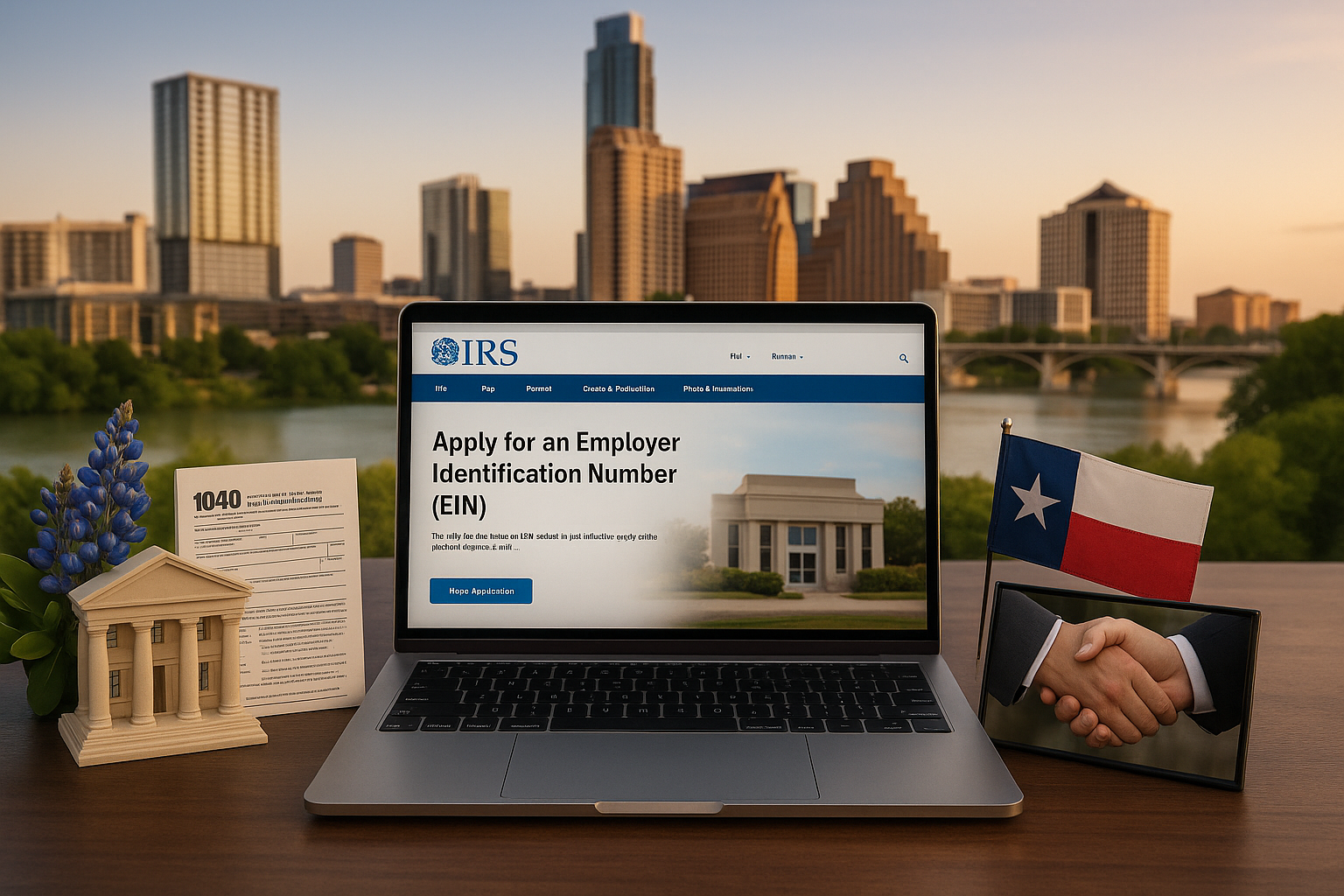LLC Formation
Start a Texas LLC Today
A Step-by-Step Guide on forming a new Texas LLC in 2025. Launch your business in the Lone Star State with confidence.

-
Liability Protection: Your personal assets, like your home or car, are generally shielded from business debts or lawsuits.
-
Tax Flexibility: LLCs enjoy pass-through taxation by default, but you can elect corporate taxation if it suits your business.
-
Minimal Red Tape: Texas has streamlined filing processes and reasonable fees, making it easier to maintain compliance.
-
Business-Friendly Climate: Texas boasts no state income tax for individuals, which can benefit LLC members.
Step-by-Step Guide to Forming a Texas LLC
- Include "Limited Liability Company," "LLC," or "L.L.C."
- Not contain restricted words like "bank" or "insurance" without proper authorization.
- Be distinguishable from other registered Texas businesses.
Let's get your business started today!
Take advantage of our fast processing times and excellent customer service. Let us help you start and manage your business.
- Have a physical address in Texas (no P.O. boxes).
- Be available during regular business hours.

- LLC name and purpose statement.
- Registered agent’s name and address.
- Whether the LLC is member-managed or manager-managed.
- Duration of the LLC (usually perpetual unless specified).
- Opening a business bank account.
- Hiring employees.
- Filing federal taxes.

- Ownership percentages and member roles.
- Profit and loss distribution.
- Decision-making processes.
- Procedures for adding or removing members.
- Sales and Use Tax Permit: Required for taxable goods or services.
- Local Permits: Cities like Houston may require zoning permits.
- Industry-Specific Licenses: Restaurants need health permits.

- File an Annual Franchise Tax and Public Information Report by May 15.
- Maintain an updated registered agent.
- Keep accurate records.

Formation Packages
Always transparent pricing from start to finish with no hidden fees.
Starter
Our Starter package is the most basic if you are comfortable doing most of the work yourself.
Start your business with:
- Comprehensive name availability check
- File documents with the State
- Lifetime customer support
- Employer ID Number
- Yearly Compliance
- Operating Agreement
- Business Documents
- Priority Filing
Professional
Our most popular package provides you with all of the essentials needed to start your business.
Start your business with:
- Comprehensive name availability check
- File documents with the State
- Lifetime customer support
- Employer ID Number
- Yearly Compliance
- Operating Agreement
- Business Documents
- Priority Filing
Premium
For those of you that need everything to start your business and stay in full compliance with all of our tools.
Start your business with:
- Comprehensive name availability check
- File documents with the State
- Lifetime customer support
- Employer ID Number
- Yearly Compliance
- Operating Agreement
- Business Documents
- Priority Filing
FAQs for Texas LLCs
Testimonials
Thousands of happy customers. Satisfaction guaranteed!
"Formation Filings made incorporating my small business a breeze. Their team was professional, and the process was completed faster than I expected. Highly recommend!"
"As a first-time entrepreneur, I was nervous about the legal side of starting my business. Formation Filings not only handled the incorporation flawlessly but also educated me on what I needed to know. Their attention to detail, quick turnaround, and friendly staff made the entire experience seamless. I’d recommend them to anyone looking to start a business with confidence!"
"Choosing Formation Filings was the best decision for my company. Their online platform was easy to use, and the pricing was transparent. They handled all the paperwork, so I could focus on growing my business. I’ll be using them again for my next venture!"
"I can’t thank Formation Filings enough for their help with my corporation setup. They were thorough, affordable, and kept me updated throughout the process. Even when I had a last-minute change, they accommodated it without any hassle. Truly a five-star experience!"
"Formation Filings turned what I thought would be a complicated process into something simple and stress-free. Their expertise in business incorporation is unmatched, and they provided personalized advice that made me feel confident in my decisions. I’m so grateful for their support in getting my company off the ground!"
"I was overwhelmed by the idea of starting my LLC, but Formation Filings guided me every step of the way. Their customer service is top-notch, and they answered all my questions promptly. I’m now confidently running my business, thanks to them!"
Let's get your business started today!
Forming a Texas LLC in 2025 is a straightforward process that sets your business up for success. Start your journey with confidence in the Lone Star State!